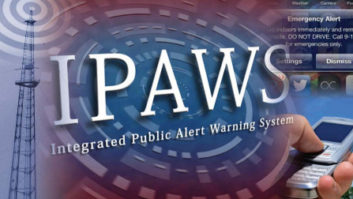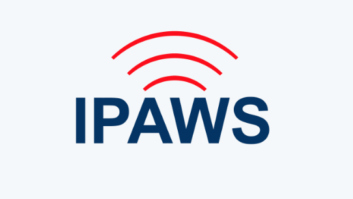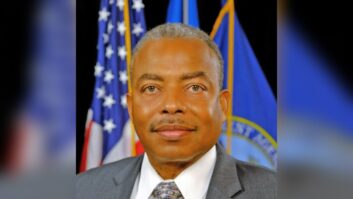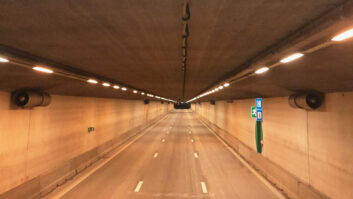Suzanne Goucher is president and CEO of the Maine Association of Broadcasters, joined the Association in 1994. Prior to joining MAB, she was the news director at WFAU(AM) and WKCG(FM) in Augusta, Maine.

She currently serves on a subcommittee of the FCC�s Communications Security, Reliability, and Interoperability Council. She is a former president of the National Alliance of State Broadcasters Associations. Additionally, she is a nationally recognized expert on the Emergency Alert System, she serves as the chair of NASBA�s EAS Committee and has testified on EAS and the Integrated Public Alert and Warning System in front of two Congressional committees.
Goucher explained what the passage of the �Integrated Public Alert 3 and Warning System Modernization Act of 2015�� bill in the House of Representatives means for broadcasters.
�
Radio:Please explain your involvement with/relationship to the passage of the IPAWS bill recently passed in the House of Representatives.
Suzanne Goucher:In 2011, as broadcasters were facing a deadline to upgrade to CAP-enabled EAS equipment, the late Ann Arnold, then President of the Texas Association of Broadcasters, and I decided to go to Capitol Hill to see if we could get federal funding for the CAP transition in the 112th Congress. Unfortunately, right at that time Congress took up the �no earmarks� refrain. We thought there were some valuable things that could be accomplished in legislation, though, so we shopped the idea around. My own Senator, Susan Collins (R-ME), who was then the Chair of the Homeland Security and Governmental Affairs Committee, agreed to sponsor a bill. It didn’t pass in that Congress, or the next, but the idea had caught on with some Members of Congress, and we were finally able to get it passed in the 114th.
Radio:This bill amends the Homeland Security Act of 2002 to direct the Administrator of the Federal Emergency Management Agency to modernize the integrated public alert and warning system of the United States, and for other purposes. Can you summarize the relevant parts of the bill, specifically as it relates to broadcasters?
Goucher:The bill does three important things:
- It authorizes the IPAWS program in law. Heretofore, it existed only as the creation of a presidential order (Bush II), so it could have easily been undone with a swipe of another presidential pen.
- It creates a national advisory council for IPAWS, consisting of federal partners and stakeholders, to meet periodically to work on improvements to the system. At present, apart from an annual forum hosted by the National Alliance of State Broadcasters Associations, there is no formal mechanism for stakeholders to gather and discuss issues surrounding the system.
- It directs FEMA to integrate EAS/IPAWS training into the National Incident Management System training for state and local officials. This will help to keep public alerting front and center in incident response.
Radio:Will this bill affect the next national EAS test scheduled for late September?
Goucher:No, I don’t think it will have any impact on the test.
Radio:The NAB has issued a statement of support for the bill. To your knowledge, have state broadcast associations or other groups also reacted favorably to the passage? Conversely, has it been controversial in any circles?
Goucher:Yes, the state associations also submitted a letter of support for the bill, as did the wireless industry. In fact, Congressman Gus Bilirakis (R-Fla.), the sponsor of the House version of the bill, asked that our letter be read into the Congressional Record when the bill was voted in the House last Monday (3/21). To my knowledge, there was no opposition to the bill.
Radio:Anything else that readers should know about the �Integrated Public Alert 3 and Warning System Modernization Act of 2015��?
Goucher:A lot of people � Hill staffers, state broadcast association CEOs, the NAB government relations folks � helped push this thing through. I�m grateful for their assistance.











